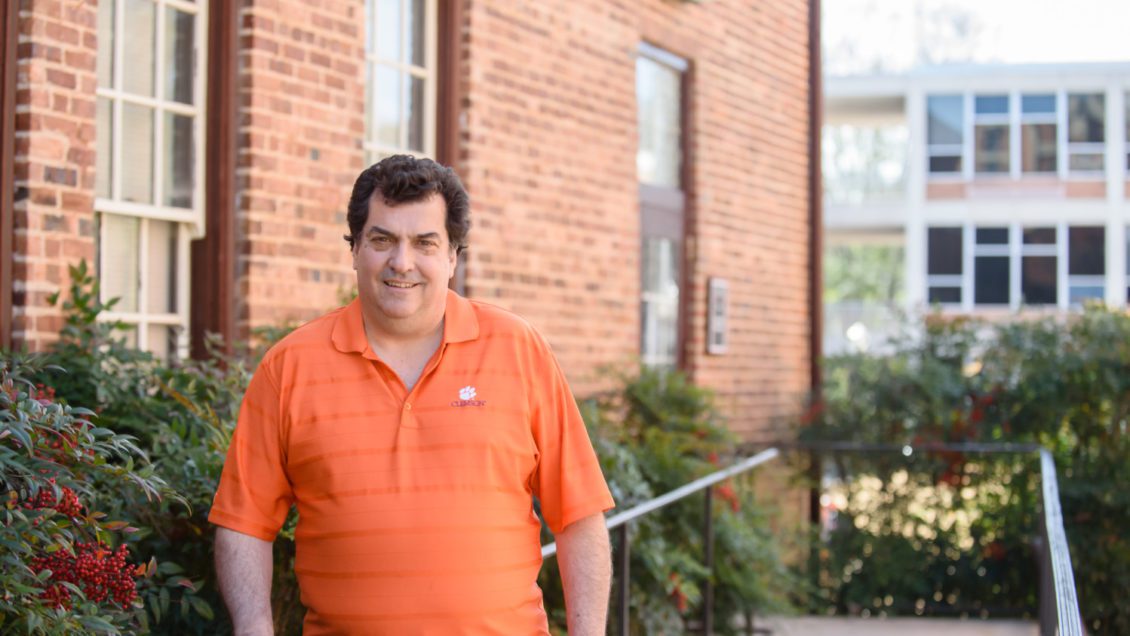[vid origin=”youtube” vid_id=”ueemiN1VqlY” size=”medium” align=”right”]
Michael Childress equips the next generation of marine biologists with the research tools they will need to make an impact on the planet, as he does every day through his own research as associate professor of biological sciences. His particular interests include conservation of the Florida Keys coral reef and observing Caribbean spiny lobsters’ adjustments to critical juvenile habitat changes.
When asked what he loves most about his role at Clemson University, he’s quick to answer: “Teaching students to conduct field research.”
In 2013, graduate student Kylie Smith, with Childress’ assistance, started a project in which they transport coral fragments from the Florida Keys National Marine Sanctuary coral rescue nursery to the reef in order to determine what factors contribute the most to the survival of coral in this area. Through this initiative, they have grown their understanding about coral and which species are most resilient in the face of certain threats, like pathogens, hurricanes or algal competition. Understanding this information is key because it allows Smith and Childress to have a better idea of which corals will work in future transplants and which locations are they most likely to survive.
Additionally, Childress is studying the effects of climate change-induced juvenile habitat loss on the abundance of the Caribbean spiny lobster, an important commercial species.
Childress explains, “Sponges protect juvenile lobster from predators, but changes in water quality have killed most of the sponges in the Florida Bay lobster nursery. As a result, we have seen decreases in juvenile lobster abundance, and a change in lobster social behaviors. Where lobsters used to be attracted to one another and share sponge shelters, they no longer show this gregarious behavior. This has the potential to disrupt their migration from the nursery habitat to their adult habitat (offshore coral reefs). To study how juvenile lobster dispersal has changed, we are placing acoustic tags on their backs and tracking their movements using telemetry.”
When he isn’t researching aquatic life, Childress is still connecting with the planet and its animal inhabitants. In his free time, he enjoys organic gardening as well as taking his dogs to disc dog competitions.
“I compete mostly in toss and fetch and extreme distance disc dog events. Both events require quickness and catching ability on the part of the dog and long, accurate throws by the handler. Two of my Dalmatians, Bonnie and Camellia, have won events and qualified for the Disc Dog World Finals. They really love the opportunity to play frisbee whether in competition or just around the yard.”
As a major research institution, Clemson has a responsibility to be a leader in engaging with initiatives that will benefit and protect the planet. Through his work, Childress has contributed to scientific knowledge surrounding marine life that will help resolve conservation issues. Childress does not plan to stop. In the next five years, he plans to continue “leading efforts in marine science conservation and education at all grade levels.”
Meet more Tigers here, and check out #FacesOfClemson on Instagram.
Get in touch and we will connect you with the author or another expert.
Or email us at news@clemson.edu

